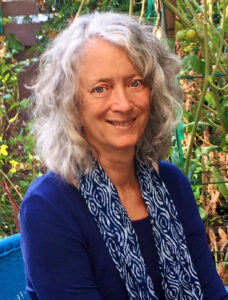
I am stunned when I hear about people who are able to rise above pain that would cause me acute suffering.
How can they sit calmly in the dentist’s chair and remove their awareness to a serene place that lies beyond all anticipation of the dentist’s probing drill as it torches flesh and nerves?
Dr. Marcel, who’s adept at this amazing feat, explains that certain meditation techniques that I, too, practice, enable him to move his consciousness to a place where there the pain simply doesn’t exist. I can only aspire to that level of mental focus and detachment!

To be clear, I’m not about to advocate that anyone should reject effective pain-control medications. I definitely ask for Novocaine at the dentist’s!
It’s incredibly important and appropriate, for example, to stay ahead of the pain in acute situations such as acute injury or post-surgical recovery. For these situations, there are pharmaceuticals and complementary medicines and therapies that can help relieve the pain.
On the naturopathic side, these approaches include acupuncture, massage, chiropractic, nutritional and botanical anti-inflammatories, homeopathics, enzymes ingested on an empty stomach, pulsed electromagnetic frequency therapies, low-level laser applications, ultrasound treatments, and more.
In concert mainstream or alternative approaches to relieving pain, and particularly when they fail, we can look to the mind-body connection for relief.
There are mental-emotional understandings and practices that can offer us a certain amount of pain relief, or the ability to live with a degree of pain, without letting it destroy our quality of life.
The field of psychoneuroimmunology explores the effects of our mental and emotional states on the body and our perception of pain. Some findings –
- Chronic stress increases inflammation, which increases pain.
- Repairing personal relationships (and avoiding toxic relationships), addressing job stress, and taking time for self-care all lessen chronic stress and pain.
- If you expect pain, look for pain, obsess about the pain, and resist it, the pain will be worse.
- The more attached you are to the notion that you are a victim of pain, the more pain you will experience.
- The more you fear the meaning of the pain, the more pain you will experience.
I’ll often recommend diagnostic imaging to rule out a condition that a patient fears their pain is indicating, and I’ve seen, amazingly, how often the pain will vanish when the patient’s self-diagnosis is disproven!
When it comes to understanding and addressing the origin of a pain, an attitude of detached curiosity can help.
Also helpful is the simple phrase, “This, too, shall pass,” which reminds us that the pain is rarely permanent.
In chronic pain, play and socialization tend to fall away, and the resulting isolation and negativity can actually exacerbate the pain.

Proverbs 17:22 tells us, “A merry heart doeth good like a medicine: but a broken spirit drieth the bones.” This amusing passage is the source of the popular saying, “Laughter is the best medicine.”
Gratitude serves a similar purpose, helping us focus on the positive rather than the negative in our lives.
It isn’t easy to start a meditation practice when we’re in pain, yet daily practice can prepare us for the times when pain is unavoidable.
Mindfulness meditation teaches us to observe and stay in the moment rather than create dire scenarios that only exist in our mind.
Meditation is effective not only in inflammation and chronic pain, but for depression and anxiety. Meditation literally changes your brain, as it alters your experience of your life.
If conventional and complementary medical modalities have left you in acute or chronic pain, I suggest you might like to explore these methods. In time, you may realize that you’re the person who can sit calmly in the dental chair and not experience any pain.
For information about the services we offer at Pacific Naturopathic, please give us a call at 650-961-1660, use the convenient Contact Form to get in touch, or follow the link to: Consultations – Pacific Naturopathic. Thank you!
